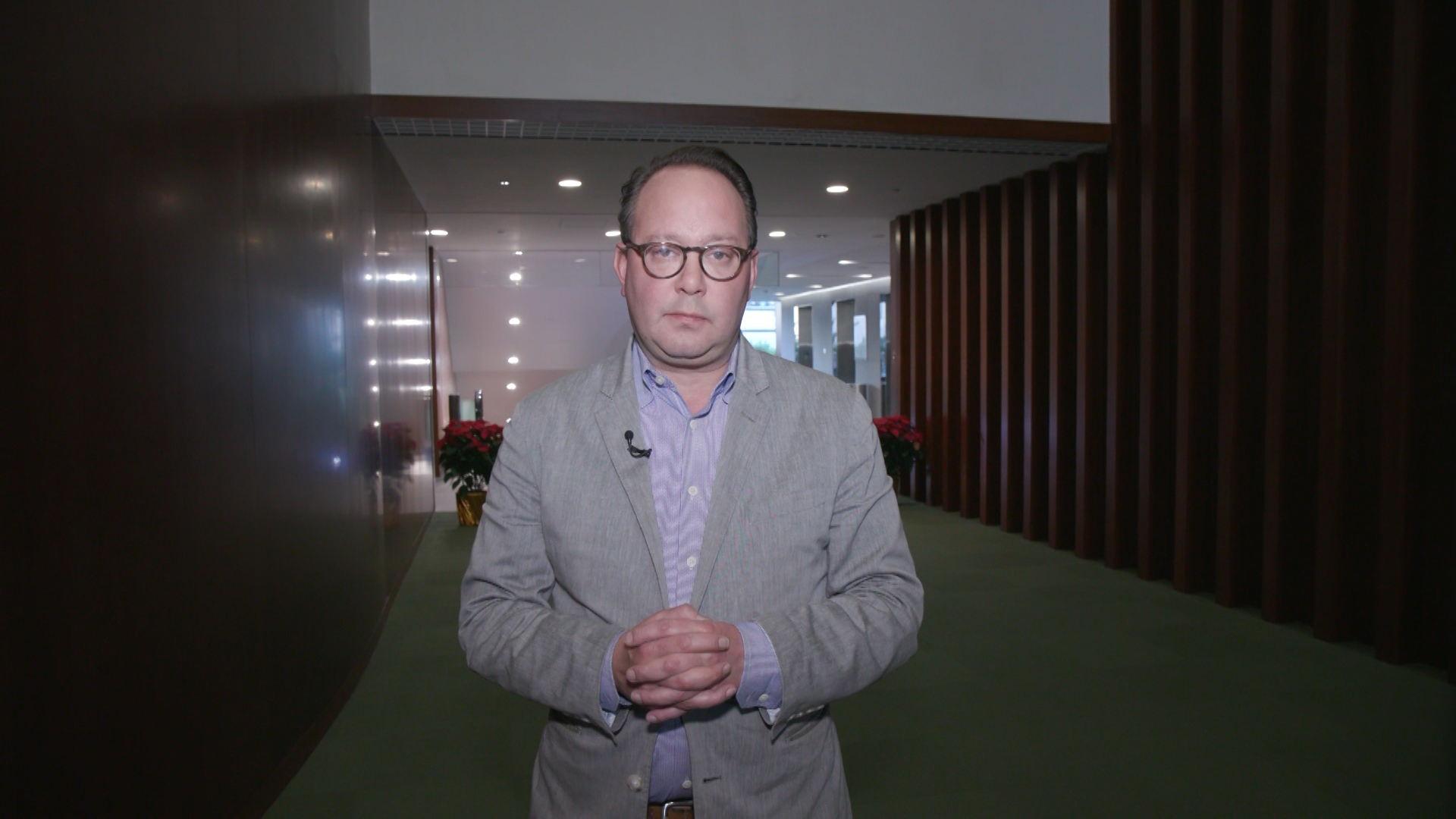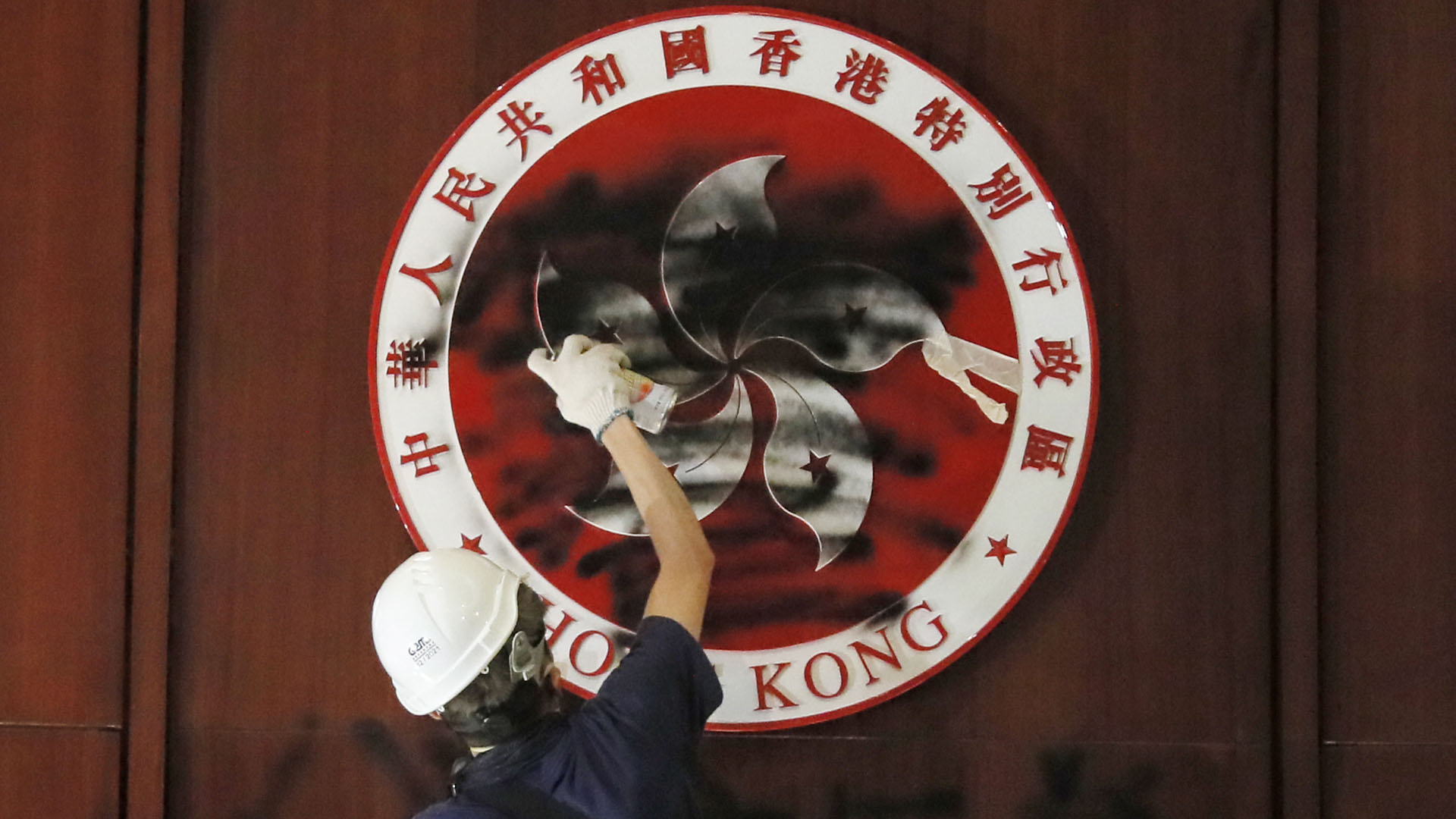01:46

After the passage of the U.S. Hong Kong Human Rights and Democracy Act in November, there's been a growing sense of unease that the U.S. law could potentially threaten Hong Kong's sovereignty.
Nathan King breaks it down.

In this July 1, 2019, photo, a protester defaces the Hong Kong emblem after they broke into the Legislative Council building in Hong Kong. Protesters in Hong Kong took over the legislature's main building Monday night, tearing down portraits of legislative leaders and spray painting slogans on the walls of the main chamber. (AP Photo/Kin Cheung, File)
In this July 1, 2019, photo, a protester defaces the Hong Kong emblem after they broke into the Legislative Council building in Hong Kong. Protesters in Hong Kong took over the legislature's main building Monday night, tearing down portraits of legislative leaders and spray painting slogans on the walls of the main chamber. (AP Photo/Kin Cheung, File)
The U.S. act includes an offer of visas and encourages U.S. allies to offer visas to protesters, whether or not they may have been violent.
Some Hong Kong lawmakers fear that could encourage violent protests.
There's also a worry that the threat of sanctions against Hong Kong officials -- including police and security forces -- could actually hamper them from doing their job.
Additionally, there are also economic fears. Hong Kong holds a special trading status with the U.S., unlike with mainland China -- which is under annual review.
This could threaten business confidence going forward and investment as well.
In the run-up to a presidential election, Hong Kong could potentially be used as a political football.
Trump signed the law reluctantly and there have reportedly been been private affirmations to Hong Kong lawmakers that not all parts of the act are going to be implemented -- and that the Trump administration is reluctant to push it forward.